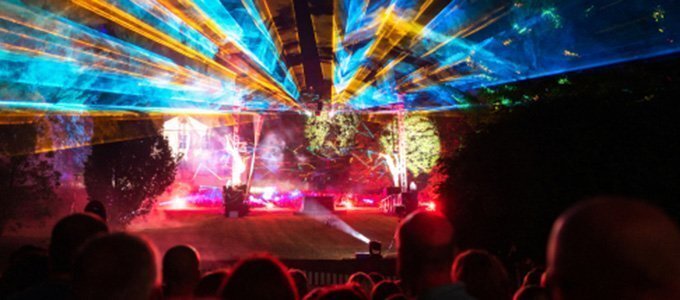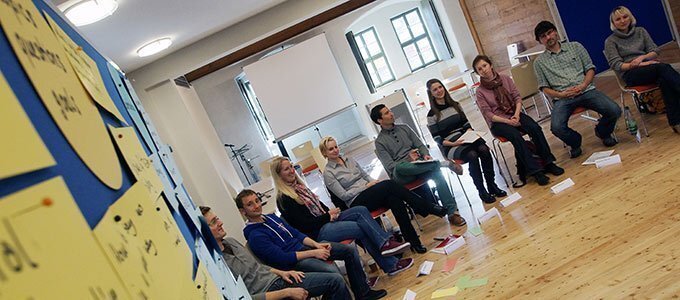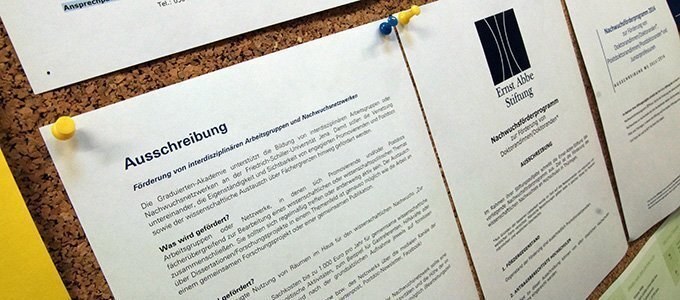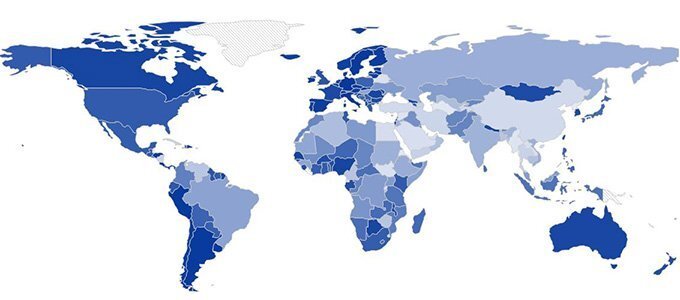|
 |
Events
- The university wants to be more sustainable. In a
university-wide Future Workshop on 31 May,
initial ideas will be collected and discussed on how
the University of Jena can become more
sustainable in the various areas. A sustainability
strategy will then be developed on this basis.
There is also still time to take part in a mobility
survey by the Green Office until 17 April.
- On 31 May, there is also the Germany-wide Diversity
Day. Around this day, the university offers
several workshops on topics such as empowerment,
migration or working in a mentally healthy way.
Shortly, you will find more information here.
- After a two-year hiatus, the summer festival
of Jena University can finally take place
again on the evening of Schiller Day this year
(Photo: C. Worsch). This year's Schiller Day is on
24 June. Ticket
sales for the event are expected to start at
the beginning of May.
|
|
|
|
 |
Get
involved
- Would you like to improve the working and research
conditions at the university and organise events for
and with other doctoral candidates? Then run for
office as a candidate for the Doctoral
Council (DR.FSU)! Be part of this
committed team! From 11 April to 23 May you will
find the nomination form on the website of the electoral
office.
- At times, our PhD studies come with hardships:
Struggles with the topic, keeping an healthy
work-life balance, dealing with pressure for
publications or scientific outcomes, expectations of
supervisors etc. The doctoral council offers an open
space to exchange about these challenges and invite
you to share your struggles as well as advice and
support at our doc.open hour on April 7th
from 5.30 to 6.30 pm via Zoom
(pw: 902403).
|
|
|
|
 |
Qualification
offers
There are still vacancies in the following online and
on-site workshops:
- Graduate Academy:
- Lehre Lernen:
- Service Center
Research and Transfer
|
|
|
 |
Announcements
- The
Graduate Academy is looking for new tutors
for the Intudoc
team. This team accompanies new international
doctoral candidates and postdocs on their first
steps in Jena, for example during visits to the
authorities. The commitment as a tutor can be
supported by a scholarship (250 euros/month) for
international doctoral candidates (application to ga-international@uni-jena.de).
German doctoral researchers can apply for a position
as a research assistant to support the team
(20 hours per week). The application deadline for
all positions is 10 April.
- The Graduate Academy is looking for the most
beautiful and creative doctoral hat! The
prizes are 50, 40 and 30 euros! Deadline for entries
is 15 May. Like last year, the photo
competition "Hats off!" can only be held as an
online voting.
- Max Planck Institute for Chemical Ecology: Six
PhD positions (Deadline 06. Mai)
|
|
|
|
 |
This
may be of interest to you
- The European Commission wants to drastically
change the assessment of research
performance: Moving away from a quantitative
view of the number of publications and impact
factors to a qualitative assessment of research
performance based on new criteria that have yet to
be found. At a conference in Paris in February, a first
statement was published emphasising the will
for change. This statement is now supported by more
than 200
research institutions and research funders in
a so-called "coalition of the willing". The
largest German funding body, the Deutsche
Forschungsgemeinschaft (DFG, German Research
Foundation), is not among the supporters – it says
the process is too rushed. However, the DFG is
participating in a commission
to find the new criteria. At the European
level, the first changes have already been made:
Last year the European Research Council has banned
the use of impact factors to evaluate applications.
- Germany has the highest level of academic
freedom in the world. This is the result of
the Academic Freedom Index (AFI), which was compiled
by the University of Erlangen-Nuremberg and the
University of Gothenburg (see image above). In many
countries, the situation has gotten significantly
worse since 2011, for example in Hong Kong, Hungary,
Russia, Poland, Turkey and India. But the situation
has also deteriorated in leading science nations
such as the UK and the USA. The Index data is free
to use and can be accessed here.
- All administrative services in Germany
shall also be offered digitally by the end
of 2022. This was decided as part of the Online
Access Act (OZG) in 2017. In the field of
education, for example, a digital high school
diploma was developed, but after serious security
flaws became public, it is now being revised.
A new project will now test whether artificial
intelligence can help to transform the existing
systems and build them up sustainably in digital
form. The Federal Ministry of the Interior is
funding this with around five million Euros over the
next three years. The University of Jena is involved
with the Competence Centre for Digital Research
(zedif) and the Heinz Nixdorf Professorship.
|
|
|
|
 |
News
from University of Jena
- A new radio
telescope has given researchers a spectacularly
detailed view of our universe: 4.4 million
galaxies have become visible – one million were
previously unknown (see picture). The Thuringian
State Observatory Tautenburg was involved
in processing the huge amounts of data. A Dutch
research team visualised the data here.
The amount of data is so large that a Citizen
Science project was launched to search for new
black holes.
- Last year, the Competence
Center Digital Research (zedif) was
founded at the University of Jena. The centre now is
the place to go for matters and questions concerning
digitalisation within research. Services provided by
zedif include courses
on software tools, but also consulting in questions
of research software engineering and management.
With its established services, the Research Data
Management Helpdesk is now a part of the Centre.
- Since this year, employees of the University of
Jena can download images from the AdobeStock
database free of charge. In order to do so,
the Adobe ID must be activated.
Unfortunately, doctoral researchers without an
employment contract with the university cannot use
the database.
|
|
|
|
 |
Latest
News from Jena city
- A new technology and start-up centre
called "Lab2fab" is
being built on the natural sciences campus at
Landgrafen. On six floors, there will be laboratory
and office space as well as workshop areas for
research in the fields of physics, chemistry,
biology, material sciences and food chemistry. Other
major construction projects outside the
university are: The Carl-Zeiss company is
building a new "high-tech location" for more than
2,000 employees on the former Schott site at
Westbahnhof (see illustration above). Here
you can see the progress in time-lapse. The company
DotSource is converting the "Alte Feuerwache"
into its new company
headquarters for up to 1,000 employees.
- Since the beginning of this week, the obligation
to wear a mask has been lifted in many areas
(e.g. in shops or restaurants). The previous access
restrictions according to 2G or 3G no longer apply.
Only in public transport, in the health sector and
in public administration a mask obligation remains
in force. Masks are also compulsory in the
university buildings until
further notice. Due to the continuously high
level of Corona infections, the government had tried
to extend the regulations until May, but could
not achieve a majority in the state
parliament.
- There are cultural events again! On 20 May, for
example, the Long
Night of Museums will take place in
Jena. During this night, all museums in Jena can be
visited with one ticket. The museums also offer
exciting special events and guided tours on this
evening. And: Starting this week, tickets for the
Kulturarena can be purchased. The Kulturarena
is a six-week festival that takes place annually in
July and August. It offers a mix of concerts,
theatre, cinema and children's events. In the last
two years, the Kulturarena could not take place or
only in a very limited form – all the more reason to
join an event this year!
|
|